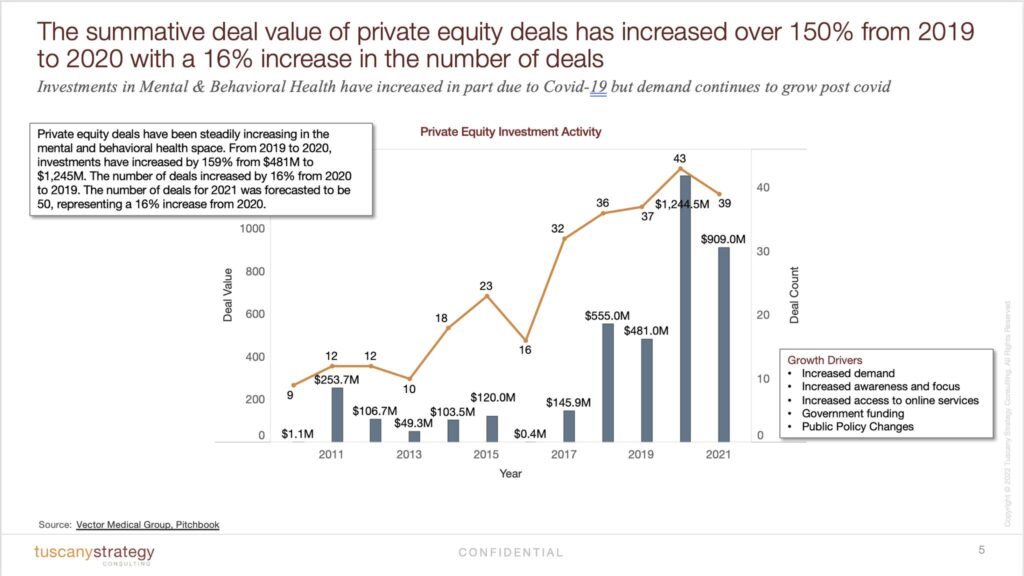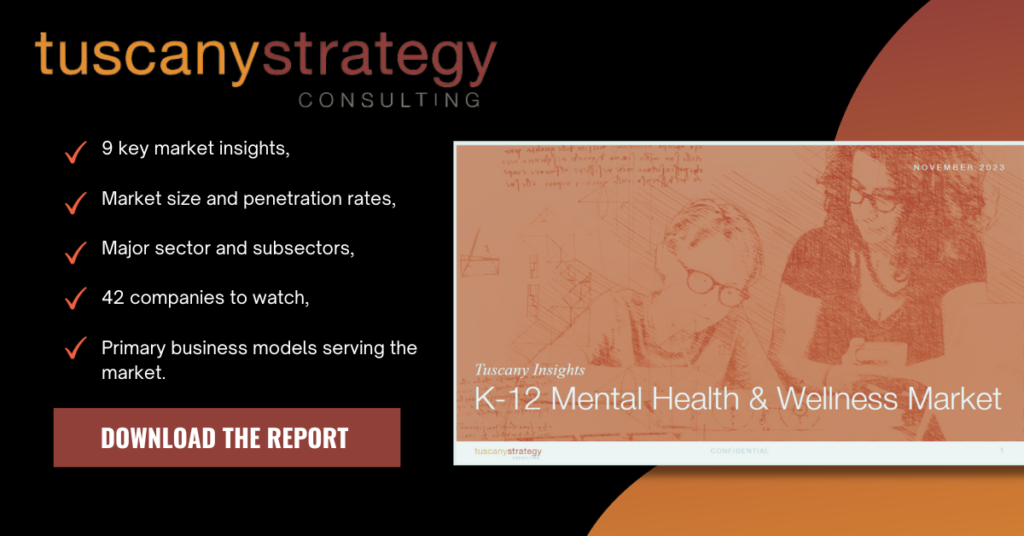Private equity deals have been steadily increasing in the mental health and behavioral health space. From 2019 to 2020, investments have increased by 159% from $481M to $1,245M. The number of deals increased by 16% from 2020 to 2019. The number of deals for 2021 was forecasted to be 50, representing a 16% increase from 2020. What’s fueling this activity?
Partly, it’s extreme levels of need
Youth mental health in the U.S. has declined steadily over the past 10 years, a trend that was highlighted by the Covid-19 pandemic. But while the pandemic may have put a spotlight on youth mental health, rates of depression and anxiety in children have been rising steadily over the past 10 years. Consequently, the U.S. Preventative Services Task Force now recommends regular anxiety and depression screens for youths ages 8-18 and 12-18 respectively.
Partly, its staffing
61% of schools cite insufficient mental health professional staff coverage as a limiting factor to their ability to effectively provide mental health services to students.
Partly its teacher training
Teachers are ill-equipped to manage complex student needs that may or may not have anything to do with the daily pressures of school.
But a hidden reason for Private Equity’s involvement is the need for rapid product and service innovation. Current funding levels and approaches have proven insufficient to meet the unmet demands of today’s students, teachers, and administrators. Further, many students get left being if they don’t have an IEP or use private pay services.
We are seeing an exciting wave of digital-first product and service innovation that we hope will give schools a new set of tools to address students’ mental health and wellness needs.



